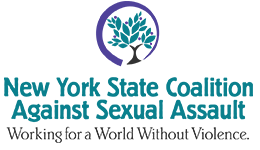CULTURALLY SPECIFIC ADVOCACY
Culturally specific advocacy rests on a foundation of designing programs to serve ethnic- or identity-specific groups taking into account their identity, language, history, and contexts of historical marginalization and oppression; with advocates drawing on their knowledge of, and connection to, their community’s social, political, cultural, and gender issues.
Culturally-specific community-based-organizations address community-specific types and dynamics of gender-based violence, working to counteract various forms of stigma within communities and discrimination within systems, recognizing the importance of connection to community and the healing value of cultural and/or spiritual practices, collaborating with systems so they are not barriers but gateways to services, and identifying and addressing historical trauma.
Click here to learn more about culturally specific advocacy.
This page contains links to resources and technical assistance centers for advocates and service providers who are supporting Disabled, Deaf, and Hard-of-Hearing survivors and their communities.
SUPPORTING SURVIVORS WITH DISABILITIES
People with disabilities turn to a variety of support systems in the aftermath of victimization, from family and friends to victim services to their local disability service provider or to law enforcement. When those support systems are knowledgeable about the needs of people with disabilities, they can broaden the paths to healing available to victims with disabilities.
Here are some resources we’ve found that can assist you with supporting and advocating for disabled survivors in your community:
SUPPORTING SURVIVORS WHO ARE DEAF OR HARD-OF-HEARING
Deaf individuals in the U.S. experience rates of domestic and/or sexual violence equal to or higher than hearing individuals, with emerging research pointing to rates twice that of hearing individuals. From 911 systems that only take phone calls to victim service providers not providing American Sign Language interpreters, Deaf survivors routinely face barriers when reaching out for help.
Here are some resources we’ve found that can assist you with supporting and advocating for Deaf and/or Hard-of-Hearing survivors in your community:

